Call a licensed insurance agent.
(877) 713-2870 CALL NOW

Medicare Resource Center
Medicare Enrollment
Learn about the Medicare Enrollment Periods, such as Initial Enrollment, Annual Enrollment and Medicare Advantage Open Enrollment
Is it time to enroll? Learn more about Medicare enrollment periods
Medicare enrollment doesn’t need to be scary. Understanding Medicare enrollment will help you prepare for the best time to start receiving benefits. Certain parts of Medicare have different enrollment periods and your individual circumstances may mean you’re eligible for special enrollment periods.
Continue reading below to learn more and if you’re still unsure when you should enroll, Senior Wellness Advisors licensed insurance agents can give you a definitive answer.
Explore Enrollment Periods
Initial Enrollment Period
General Enrollment Period
Annual Enrollment Period
Special Enrollment Periods
Other Enrollment Periods

Initial Enrollment Period
Your Initial Enrollment Period (IEP) begins three months before your 65th birthday month and ends three months after, for a total of seven months including your birth month. This is your opportunity to enroll in Medicare Parts A, B, and D.
If you're not already receiving Social Security or Railroad Retirement Board benefits, it's essential to sign up for Medicare Parts A and B during your IEP.
Even if you're not planning to retire at age 65, you can still enroll in Medicare Parts A and B during your IEP. After retirement, you have the option to switch to a Medicare Advantage plan that offers more comprehensive coverage, such as dental, vision, hearing, critical illness, and more.
Initial Enrollment Period Timeline
The Initial Enrollment Period (IEP) is the seven-month period of time when you can enroll for the first time in a Medicare plan. It starts on the 1st day of the month that is 3 months before my birth month and ends on the last day of the month that is 3 months past my birth month.

Recommended Reading

5 Things to Know About the Medicare Initial Enrollment Period

Initial Enrollment Period
If you're eligible for Medicare but didn't sign up when you first could, don't worry: The General Enrollment Period (GEP) runs from January 1st to March 31st each year and gives you another chance to enroll in Medicare Parts A and B.
The GEP is a yearly opportunity for those who missed their initial Medicare enrollment window to sign up. It's also a chance to enroll if you missed any special enrollment periods due to life events like losing job-based coverage.
Many people delay enrolling in Medicare Part B if they're still working and have employer-provided health insurance. While this is often a smart move, some individuals might miss their initial sign-up window or experience changes in their employment situation that make Medicare more attractive. However, you may be subject to a Part B Late Enrollment Penalty.
What is the Part A Penalty?
If you have to buy Part A and you don't buy it when you're first eligible for Medicare, your monthly premium may go up 10%. You'll have to pay this penalty for twice the number of years you didn't sign up. For instance, if you waited two years to sign up, you'll have to pay the penalty for four years.
Note: Most people qualify for premium-free Part A, so this would not apply in those cases.
What is the Part B Penalty?
The Part B late enrollment penalty is an extra 10% of the standard monthly premium for each year that someone delays enrolling in Part B after becoming eligible, unless they have a Special Enrollment Period. You will have to pay this penalty for as long as you have Medicare Part B.
What is the Part D Penalty?
The Medicare Part D late enrollment penalty occurs when you do not join a Medicare drug plan when you first get Medicare, and go 63 days or more without creditable drug coverage — coverage that's similar in value to Part D.
Recommended Reading

Is Medicare Mandatory? Understanding Penalties for Delaying Medicare

Annual Enrollment Period
Medicare's Annual Enrollment Period, also known as Medicare's Open Enrollment Period or Annual Election Period, lasts from Oct. 15 through Dec. 7 each year. Changes made during this time take effect on Jan. 1 of the following year.
This period is specifically important for those with Medicare Advantage plans and Medicare Part D (Prescription Drug) plans.
Frequently asked questions about Medicare's Annual Enrollment Period
Who does the Annual Enrollment Period apply to?
Anyone enrolled in Medicare can participate in the AEP. This includes those with Original Medicare (Parts A and B), Medicare Advantage (Part C), and Medicare Part D (prescription drug coverage).Please note that if you have Original Medicare along with a Medicare Supplement plan, AEP is a good time to specifically evaluate your standalone Prescription Drug Coverage, or determine if health or budget changes mean you should evaluate a Medicare Advantage plan.
What can I do during the Annual Enrollment Period?
The AEP allows you to make several changes to your Medicare coverage:
Switch: Move from Original Medicare to a Medicare Advantage plan, or vice versa.
Change: Switch between different Medicare Advantage plans.
Enroll: Join a Part D prescription drug plan if you don't have one.
Switch: Change your Part D plan if you already have one.
Drop: Cancel your Part D coverage if you no longer need it.
Why should I review my coverage during AEP?
It's crucial to review your coverage annually because plans can change. Premiums, deductibles, copays, covered services, and provider networks can all be adjusted from year to year. By reviewing your options, you can ensure you're in the plan that best meets your needs and budget for the coming year.
Do I have to change my Medicare plan during AEP?
No, you don't have to make any changes if you're happy with your current plan. However, it's still wise to review your coverage each year to ensure it still meets your needs and budget, as plans can change their costs and benefits.
What if I miss the AEP deadline?
If you miss the December 7th deadline, you'll likely remain with your current coverage for the next year. There are some exceptions, such as if you qualify for a Special Enrollment Period due to specific life events (like moving or losing other coverage). However, it's best to evaluate your coverage during the AEP to avoid potential gaps in coverage or unexpected costs.
Medicare's Annual Enrollment Period: Key Takeaway
Recommended Reading
There's no getting around it: Medicare's Annual Enrollment Period is a source of confusion and stress for many Medicare beneficiaries each year. You'll be inundated with advertisements, often leading to confusing conclusions on what you should or should not do.
That's why we recommend Senior Wellness Advisors as your first call each AEP, whether you're a current customer or not. We can take the guess-work out of this time for you, and help make you confident Medicare decisions for the next year.

Medicare Enrollment Periods: Open Enrollment Period Basics

What Changes Can I Make to My Medicare Advantage Plan During Open Enrollment?
Special Enrollment Periods
You may be eligible to enroll in Medicare after your IEP and outside of the Annual Enrollment Period if you meet certain criteria. These are divided into a few categories with many situations underneath; we'll explore some of the common ones now, but we recommend, for a full list, visit the Medicare.gov page at the bottom of this section.
In addition, if you believe you're in a Special Enrollment Period, a Senior Wellness Advisors licensed insurance agent can help examine your situation to determine your eligibility.


You've moved.
Moving may mean that your new address isn't in your current plan's service area, or your new address may have new plan options.
In both these options, you can switch to a new Medicare Advantage or Medicare drug plan, but your timeline depends on how soon your notify your current plan.

You've lost current coverage.
Examples of this situation include leaving coverage from your employer or union (including COBRA) or you've lost creditable drug coverage.
In the first situation, you have two months to join a Medicare Advantage or Medicare drug plan for 2 months following the month your coverage ends. In the second, you can join a Medicare Advantage plan with drug coverage (MA-PD) or a Medicare drug plan.

You have other coverage choices.
This situation includes having a chance to join coverage offered by an employer or union, or you are enrolling in other drug coverage as good as Medicare drug coverage.
In the first, you can drop your current Medicare Advantage plan or Medicare drug plan to enroll in your new employer plan. In the second, you can drop your current Medicare Advantage or Medicare drug plan coverage to be enrolled in Original Medicare, or you can switch from a Medicare Advantage plan with drug coverage to one without.
Again, these are not inclusive of all scenarios in which you may be eligible for a Special Enrollment Period. For more information, visit the link below or contact your Senior Wellness Advisors Licensed Insurance Agent.
Special Enrollment Periods

You may be eligible to enroll in Medicare after your IEP and outside of the Annual Enrollment Period if you meet certain criteria. These are divided into a few categories with many situations underneath; we'll explore some of the common ones now, but we recommend, for a full list, visit the Medicare.gov page at the bottom of this section.
In addition, if you believe you're in a Special Enrollment Period, a SmartMatch licensed insurance agent can help examine your situation to determine your eligibility.

You've moved.
Moving may mean that your new address isn't in your current plan's service area, or your new address may have new plan options.
In both these options, you can switch to a new Medicare Advantage or Medicare drug plan, but your timeline depends on how soon your notify your current plan.

You've lost current coverage.
Examples of this situation include leaving coverage from your employer or union (including COBRA) or you've lost creditable drug coverage.
In the first situation, you have two months to join a Medicare Advantage or Medicare drug plan for 2 months following the month your coverage ends. In the second, you can join a Medicare Advantage plan with drug coverage (MA-PD) or a Medicare drug plan.

You have other coverage choices.
This situation includes having a chance to join coverage offered by an employer or union, or you are enrolling in other drug coverage as good as Medicare drug coverage.
In the first, you can drop your current Medicare Advantage plan or Medicare drug plan to enroll in your new employer plan. In the second, you can drop your current Medicare Advantage or Medicare drug plan coverage to be enrolled in Original Medicare, or you can switch from a Medicare Advantage plan with drug coverage to one without.
Again, these are not inclusive of all scenarios in which you may be eligible for a Special Enrollment Period. For more information, visit the link below or contact your SmartMatch Licensed Insurance Agent.

Other Enrollment Periods
There are two other periods that occur after you have enrolled in Medicare and want to make changes, and they pertain to two different aspects of Medicare: Medicare Supplement (Medigap) and Medicare Advantage.
These are called the Medigap Open Enrollment Period and the Medicare Advantage Open Enrollment Period.
Medigap Open Enrollment Period
When is the Medigap OEP?
This is a 6-month time period that begins the first day of the month you're 65 or older and signed up for Medicare Part B. Both qualifications have to be true; this often drives confusion because it often at least partially overlaps with your Initial Enrollment Period.
What can I do during the Medigap OEP?
During this time period, you're able to purchase any Medigap policy that's available in your state.
What are the benefits of the Medigap OEP?
There are two benefits: The first is that insurance companies have to sell you any policy that's available in your state. The second is that they have to charge you a standard rate. These means there is no medical underwriting, which means you can't be denied coverage and you can't be charged more because of your age or pre-existing conditions.
Medicare Advantage Open Enrollment Period
What is the Medicare Advantage OEP?
This lasts from Jan. 1 through March 31 every year, and is specifically for beneficiaries currently enrolled in a Medicare Advantage plan.
What can I do during the Medicare Advantage OEP?
During this time period, if you're enrolled in a Medicare Advantage plan, you can switch to a different Medicare Advantage Plan, disenroll from your current Medicare Advantage plan and return to Original Medicare, or join a Medicare Part D plan if you don't have one.
What else do I need to know about the Medicare Advantage OEP?
Agencies such as Senior Wellness Advisors can't market toward this time period, so you'll have to know about it in order to make a change.
Other Enrollment Periods

There are two other periods that occur after you have enrolled in Medicare and want to make changes, and they pertain to two different aspects of Medicare: Medicare Supplement (Medigap) and Medicare Advantage.
These are called the Medigap Open Enrollment Period and the Medicare Advantage Open Enrollment Period.
Medigap Open Enrollment Period
When is the Medigap OEP?
This is a 6-month time period that begins the first day of the month you're 65 or older and signed up for Medicare Part B. Both qualifications have to be true; this often drives confusion because it often at least partially overlaps with your Initial Enrollment Period.
What can I do during the Medigap OEP?
During this time period, you're able to purchase any Medigap policy that's available in your state.
What are the benefits of the Medigap OEP?
There are two benefits: The first is that insurance companies have to sell you any policy that's available in your state. The second is that they have to charge you a standard rate. These means there is no medical underwriting, which means you can't be denied coverage and you can't be charged more because of your age or pre-existing conditions.
Medicare Advantage Open Enrollment Period
What is the Medicare Advantage OEP?
This lasts from Jan. 1 through March 31 every year, and is specifically for beneficiaries currently enrolled in a Medicare Advantage plan.
What can I do during the Medicare Advantage OEP?
During this time period, if you're enrolled in a Medicare Advantage plan, you can switch to a different Medicare Advantage Plan, disenroll from your current Medicare Advantage plan and return to Original Medicare, or join a Medicare Part D plan if you don't have one.
What else do I need to know about the Medicare Advantage OEP?
Agencies such as SmartMatch can't market toward this time period, so you'll have to know about it in order to make a change.
Want to learn more?
Now that you know about Medicare's enrollment periods, it's time to learn more about what plan may be right for you. Go to our next section to learn about Medicare Advantage, Medicare Supplement and Medicare Part C.

Feature Headline
Lorem ipsum dolor sit amet, consectetur adipisicing elit. Autem dolore, alias, numquam enim ab voluptate id quam harum ducimus cupiditate similique quisquam et deserunt, recusandae.
Senior Wellness Advisors
Corporate Office:
Atlanta, Georgia 30339
Business Hours:
Monday – Friday
8:00am – 6pm EST
Plans
Resources
Support
Company
Stay Connected
To learn the number of organizations and number of products we represent in your area, enter your ZIP code after clicking the button below.
This is a solicitation for insurance. Not connected with or endorsed by the U.S. Government or the federal Medicare program. Senior Wellness Advisors is licensed to sell insurance products in 10 states. Callers will be connected with a licensed agent who can enroll you into a Medicare Advantage, Prescription Drug (Part D and Medicare supplement insurance plan.
We do not offer every plan available in your area. Currently we represent 8 organizations which offer 3,299 products nationwide. Please contact
Medicare.gov, 1-800-Medicare, or your local State Health Insurance Program (SHIP) to get information on all of your options. The plans we represent do not discriminate on the basis of race, color, national origin, age, disability, or sex. Not all plans offer all benefits. Availability of benefits and plans varies by carrier and location.
Limitations and exclusions may apply.
No obligation to enroll. Senior Wellness Advisors represents Medicare Advantage [HMO, HMO SNP, PPO, PPO SNP, and PDP] organizations that have a Medicare contract. Enrollment in any plan depends on contract renewal. PLEASE NOTE: Medicare Supplement insurance is available to those age 65 and older enrolled in Medicare Parts A and B and, in some states, to those under age 65 eligible for Medicare due to disability or End-Stage Renal disease.